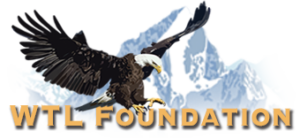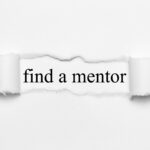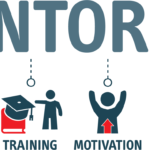Mentors come in all shapes and sizes. Some mentors serve in formal mentoring programs with certain policies that dictate how often they meet with their mentee and what they do together. Other mentors are informal in nature. Typically, these might include, as examples a teacher, Aunt or Uncle, sports coach, grandparent and others. There is no specific time commitment or activities with informal mentoring.
I am grateful that I have always been surrounded by informal mentors that have cared about me, guided me and helped to shape my life. Growing up in Brookline, MA, my first mentor was my great Aunt Shirley. She was never married, did not have children of her own and spent a lot to time with my twin brother and me. Shirley had one serious addiction. She loved the Boston Red Sox. During my Aunt’s time on this earth, women for the most part were not that involved in baseball and certainly did not have her level of knowledge about the game and the teams. She would take me to Fenway Park when we were kids, make sure I wore my Sox cap and taught me to put my hand over my heart to sing the Star Spangles Banner. The results of her intense introduction to and teachings about the Red Sox is that I am a committed, addicted Red Sox fan. I followed her lead. It became part of my DNA. That is surely one kind of mentoring or role modeling for which I am eternally grateful.
While I was in high school, I had a Spanish teacher who recognized that in her words, “I had a real ear for languages.” She nurtured me and encouraged me to pursue a college major in languages. I did just that. When I arrived at Carnegie-Mellon University, I had the good fortune to meet Dr. Eugene Caliendo. He was the head of the Department of Modern Languages. I not only majored in Spanish and Russian, but Gene introduced me to his family, invited me for homemade meals cooked by his wife and made my time away from home in college so warm and wonderful. He gave me great advice. We remained dear friends until the day he passed away.
Of all my mentors, none will ever take the place of Dr. Leo C. Mann. A professor in the Department of Business and Public Management at the University of Bridgeport, he became my advisor in my doctoral program. I can’t help but think of Mr. Hatch and how much time he took to help Bill Coors. That was Leo for me. He admitted that he was my favorite student. Writing a dissertation is often a very lonely time in one’s graduate’s studies. Leo was always there for me. He believed in me and even when other advisors on my Committee questioned the value of the topic that I selected to defend, there was Leo pushing me, challenging me, believing in me and defending my work. He was a true advocate. When at one juncture, I thought about giving up (it can be a grueling experience), Leo knocked sense into the head of this student. He kept me on track and even provided a little guilt. Good guilt, that is! I would never let him down.
In the late 1980s, technology was very different then it is today. Maybe some will remember what an overhead projector is. That handy machine was what we all used to project our presentations. There were no thumb drives. Dr. Leo Mann was so excited the day that this nervous student prepared to defend my doctoral dissertation that he carried the projector across the campus for me. I could not believe it. He was so proud, and I never forgot that gesture. Leo’s caring, advice and advocacy launched my career in the field of mentoring. In later years, Leo became ill and passed away. When his wife, Peggy notified me, I cried bitterly. She and I are still in touch. I am happy that Leo always knew what I thought of him, the mentor whom I adored. I often think how proud he would be of me if he was alive today.
If you have had a mentor in your life, whether formal or informal who has truly made a difference for you, don’t forget to take the time to thank them for their impact. It is so important to them and to you!
Dr. Susan G. Wienberger



Covid-19
/in DR. SUSAN G. WEINBERGER, Mentorship /by Margo HamiltonCAN MENTORS PREVENT BULLYING?
/in DR. SUSAN G. WEINBERGER, Mentorship /by Margo Hamilton